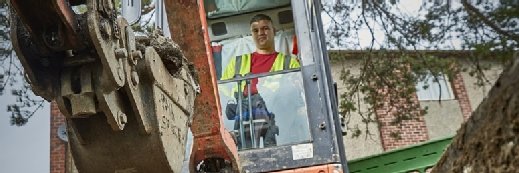
Q2 revenues slip as Virgin Media O2 hits financial headwinds
UK’s second-largest network provider shows results for tough quarter for consumer fixed and mobile and B2B fixed business lines, but forecast advances in network evolution as targeted investments in future growth drivers continue
Even though it hit a milestone in the three-month period with its full-fibre footprint reaching five million premises in the UK, Virgin Media O2 (VMO2) has reported a challenging second quarter of its financial year with financial headwinds leading to total revenues and EBITDA falling compared with a year ago.
For the three-month period ended 30 June 2024, VMO2 saw Q2 total revenue decreased 1.4% year-on-year to £2.674bn, as revenue excluding the impact of construction of the Nexfibre network decreased 4.1%. Total mobile revenue decreased 6.4% to £1.398bn, primarily driven by low-margin handset revenue, which decreased 19.5%.
Consumer fixed revenue increased 3.9% compared with the same period a year ago to £864.8m, as the implementation of contractual price increases for the first time drove a return to growth in ARPU per fixed-line customer relationship. B2B fixed revenue tumbled 15.5% on an annual basis to £108.1m with the primary driver being a reduced level of network hardware and associated professional services sales. Other revenue increased 18.2% to £302.7m driven by increased Nexfibre construction revenue, partially offset by decreased mobile insurance revenue and other smaller drivers.
Q2 Adjusted EBITDA slipped back 1.6% year-on-year to £998.4m, or a 1.5% decrease excluding Nexfibre construction, prior to £10.6m of Opex cost-to-company. This was driven by reduced contribution from B2B fixed and additional expenditure in IT and digital efficiency programmes. Furthermore, after a related-party contract change, approximately £10.3m of CPE hardware and essential software costs were capitalised. Adjusted free cash flow for the quarter was £435.9m.
Yet despite the tough numbers in the Q2 results, VMO2 said the quarter also saw a number of strategic and operational advancements in upgrading the UK’s digital infrastructure, in particular passing five million premises in its full-fibre footprint. This, it said, was reached through a combination of its existing fibre footprint, progress in the fibre upgrade activity, and as the anchor tenant and build supplier of the Nexfibre network. Full-fibre footprint expansion build accelerated by 68.3% year-on-year, as the total serviceable footprint grew by 295,300 homes in Q2, principally through build on behalf of Nexfibre.
In wireless, the roll-out of 5G Standalone continued, with outdoor 5G coverage now reaching almost two-thirds of the UK population (65%) following the switch-on of the next-generation network in the first quarter of 2024.
The company said it’s on track to bring 5G to all populated areas of the UK by the end of 2030, while continuing to invest in increasing mobile network capacity and improving rural connectivity. It also completed the first stage of its Shared Rural Network roll-out in June 2024, in line with government targets, bringing reliable 4G coverage to 227 rural communities across the UK, helping to reduce the digital divide.
Read more about UK broadband
- UK altnets celebrate further full-fibre milestones: North of England gigabit deployments see Brsk rolling out full-fibre broadband to approximately 30,000 homes and businesses in Runcorn, Cheshire.
- VMO2, MS3, Brsk report gigabit gains: UK full-fibre broadband boom continues as major provider allows 20,000 more homes in Milton Keynes to gain access to 2Gbps connectivity, while leading altnets record deployment landmarks.
- CityFibre, Nexfibre gain further gigabit ground in southern England: UK’s leading independent provider makes full-fibre available to majority of homes and businesses in West Sussex county town, while growing gigabit broadband wholesaler reveals plans to deliver it to more than 15,000 premises in Buckinghamshire.
- Neos Networks advances Oxfordshire GigaHubs project: More than 180 public service sites, from local GP practices to schools, community centres and the authority’s own IT estate, are now connected with full-fibre connectivity as part of a County Council programme.
In July, VMO2 and Vodafone UK announced a new, long-term mobile network sharing agreement, expanding on the existing arrangement between the two parties. VMO2 added that should the Vodafone UK and Three UK merger into MergeCo receive approval from the UK’s Competition and Markets Authority, the agreement provides a stable basis for MergeCo’s enlarged network to participate in the network sharing agreement, with VMO2 acquiring spectrum from the company.
Going forward though, VMO2 warned that in guidance for the rest of 2024, it expected low to mid-single-digit decline in revenue, excluding the impact of Nexfibre construction, and a low to mid-single-digit decline in Adjusted EBITDA excluding the impact of Nexfibre construction.
Looking to the second half of the year, Virgin Media O2 CEO Lutz Schüler said the company’s strategy would be to invest in key drivers of future growth and be focused on delivering while transforming and simplifying the business for long-term success.
“Despite a tough trading environment, we remained focused on delivering more for our customers, continuing to invest significantly in our networks and services, to the level of more than £1bn so far this year and successfully executing price changes,” he said. “We have maintained consumer fixed and mobile revenue excluding handset, with overall revenue impacted predominantly by mobile hardware headwinds, and profitability is on track and in line with our full year guidance.
“Our fibre deployment has gathered significant pace, with the Virgin Media O2 fibre footprint now hitting five million premises as we push forward towards creating the UK’s largest national fibre challenger,” said Schüler.
“Our 5G mobile connectivity now covers almost two-thirds of the UK population … Looking ahead, our new network sharing agreement with Vodafone UK builds on the success of our existing relationship and also keeps Virgin Media O2 in a strong position should the Vodafone-Three merger be approved – an outcome we support and believe would be a positive step for investment in the UK’s digital infrastructure.”








